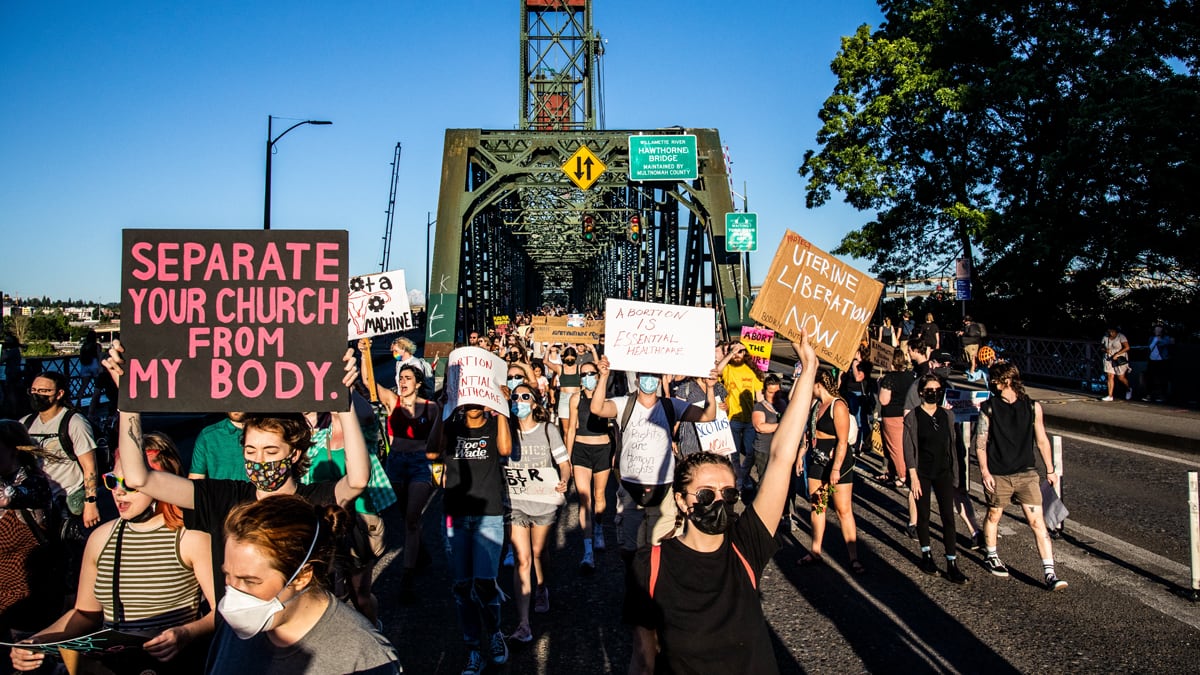Many in Portland raged and mourned June 24 after the U.S. Supreme Court overturned the 1973 decision in Roe v. Wade, which had for more than a generation enshrined a nationwide right to abortion.
But for Oregon Right to Life, the news was cause for celebration and an incentive to keep working.
The decision in Dobbs v. Jackson allows states to make laws to limit abortion. Four states and the District of Columbia have laws on the books that actively protect the right to an abortion all the way through pregnancy. Oregon is one of them.
Nobody understands that better than Lois Anderson, executive director of Oregon Right to Life. “There was really nothing that changed,” she says.
But the three-way governor’s race in Oregon offers conservatives a rare chance at statewide power. So we asked Anderson what the group’s next priorities are and what the stakes are for the governor’s race where a Republican has the best chance of getting elected in a decade.
WW: Where were you when you heard the Supreme Court decision?
Lois Anderson: I was actually in Atlanta at the national Right to Life convention. So I was in a room full of pro-life advocates, and it was a joyful, very emotional reaction that I think all of us had.
All of us understand that overturning Roe was just a step along the way. Now we still have a lot of work to do.
There is a tremendous responsibility to have resources for women who are pregnant and are in difficult circumstances and realizing that this is controversial. We will hopefully be a force for bringing peace and not conflict.
Oregon voters generally favor legal abortions or are pro-choice. Are there restrictions you think Oregonians would support?
When we have asked about abortions in later pregnancy, between 20 weeks and later into the third trimester, the response has varied from 50% to 70% that say no, they don’t want it to be legal.
What could a Republican governor do if elected in November?
Every [legislative] session there seems to be something else that they need to spend money on, or they need to have a policy that just is a very pushy abortion agenda from our perspective. So, first of all, if Christine Drazan is successful and wins the [governorship], she stops that march toward extremism.
I remember when John Kitzhaber was governor and there were pro-life majorities. Republican majorities in the Legislature did pass a health budget that did not include abortion funding. And he vetoed the entire health budget. He was willing to burn down the whole health department unless they included abortion funding. And to me that’s a pretty extreme position.
Are you calling that extreme because of his extreme support for abortion or because of the tactic?
Taxpayer funding of abortion is outside the mainstream. There’s a minority of states that fund abortion with taxpayer dollars.
Would you would like to see a pro-life governor, if they’re elected, use the line-item veto to block that kind of funding?
Yeah.
How about judicial appointments? Should there be some kind of litmus test around abortion?
I have a philosophical issue with litmus tests. I think that judges should truly be independent.
What I would like to see is a good vetting of judges that have a proper view of the role of state government, a proper role of the judiciary. And my perspective that includes the freedom of the Legislature to regulate and put forward policies about abortion.
What would you imagine as a legislative priority should the unlikely happen and Republicans win majorities in the statehouse?
I don’t know that I’ve ever seen a worse political landscape for the party in power in my lifetime.
Our priority would probably be the same as it’s going be if we don’t get a majority, which is to introduce legislation that restricts abortion in the later weeks of pregnancy.
How do you think overturning Roe will impact the governor’s race?
For the majority of voters in the fall, abortion is not going to be their top issue. I think their top issue is going to be the thing that impacts them the most—in their family and their neighborhood—which might be homelessness, which might be crime and public safety, which might be the economy. It’s highly unlikely that issue is going to be abortion.
[But this] is pretty historic, where we have three women, three going to be well-funded, well-organized campaigns. Two of those women are pro-choice.
And you have two candidates, competing for the voters that care about abortion that are pro-choice and only one candidate who is for the pro-life voters. So I think it’s going to be a very interesting dynamic, and we’re certainly going to work as hard as we can to get pro-life voters to the polls and to vote for Christine Drazan.
Do you worry at all that the Supreme Court’s decision will energize Democrats who are otherwise demoralized?
There’s always a concern. I mean, voter behavior and dynamics are a moving target.

